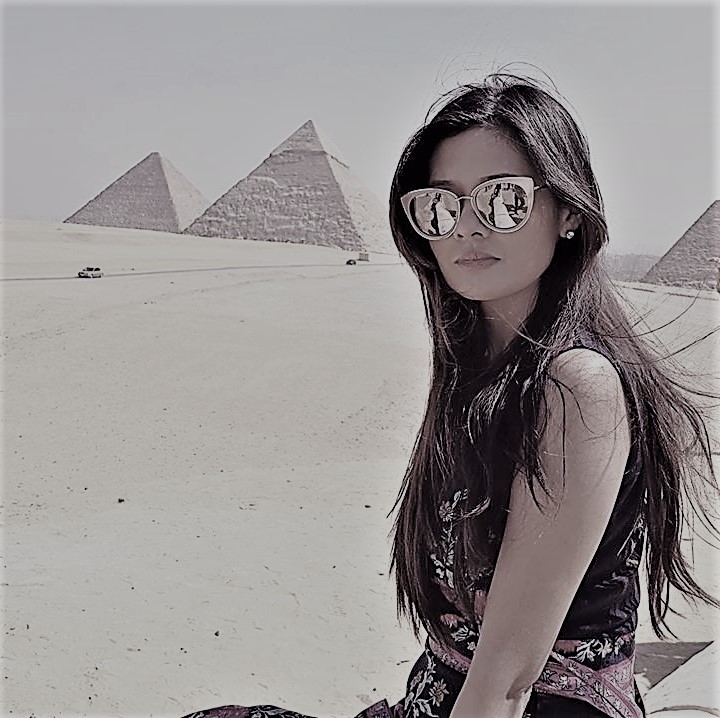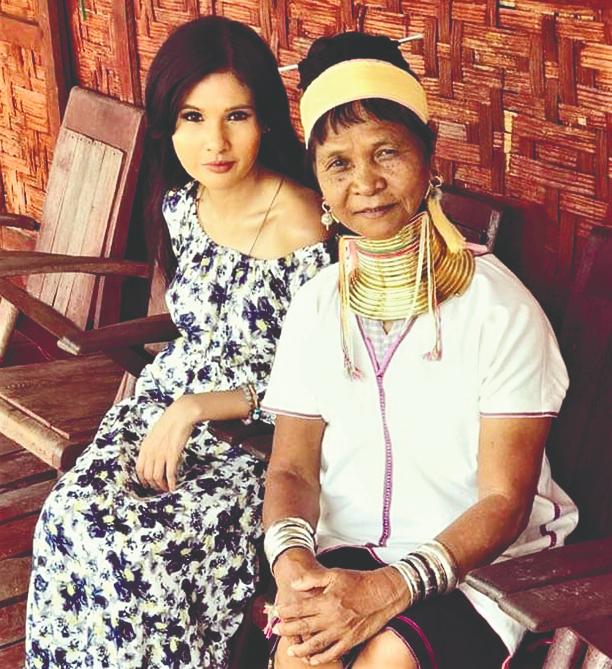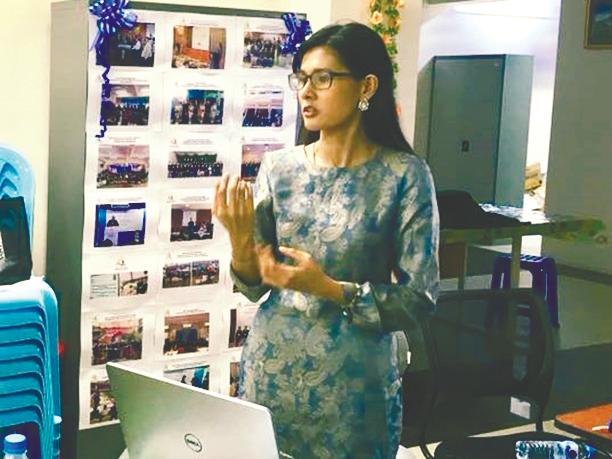Michelle Yesudas - slowly but surely putting action where her heart is
by Tamarai Chelvi
Don’t get us wrong in referring to Michelle as “bad”; what we mean is stubbornly strong-willed. Her name may ring a bell to those in legal circles, as well as they who follow controversial cases, such as that which involved yellow balloons some years ago. To those unfamiliar, you could say Michelle wears courage on her sleeve, other than her heart - having represented a number of human rights activists and members of the public who participated in rallies against government policies and social norms (at a time when others dared not).
Individuals who know, have met and worked with this lady lawyer and activist, will attest to her reputation as a firebrand, previously with “Lawyers for Liberty” and currently in her role as senior legal adviser at the International Commission of Jurists (ICJ), Myanmar under Amnesty International. One who does not compromise her values, is strong in character, firm and unwavering in her beliefs; she is also a fire spinner and hooper, paints and writes. Here, Michelle throws light on a bit of the past, present and future.
Q: What inspired you to become a lawyer and some of the challenges you faced as a female criminal lawyer?
A: At the time I finished secondary school, I was very exposed to how deeply unequal society was and how one’s economic status and the language you speak (among other factors) can ‘impact’ one’s access to justice. I thought I could play a small part in facilitating this for people who experienced challenges.
As a female lawyer, the challenge was being young and female. I also had a lot to learn, along with dealing with veiled misogyny from state authorities that expected me to conform to gender roles and stereotypes.
Q: What mooted your interest in human rights and what are your main responsibilities at ICJ?
A: It was after reading books by Arundhati Roy and Hannah Arendt ... but in hindsight, I think I was always surrounded by the jarring differences of social classes and the awareness of structural inequality throughout the world, especially Southeast Asia. These books helped me verbalise and plan the best help I can provide with my limited capabilities. I just feel everyone can make a small difference by making radical changes to the way we treat others and ourselves - human rights are for everyone.
Currently, as the senior legal adviser at ICJ Yangon, I work with a team to provide technical advice and support to Civil Society Organizations, lawyers, associations and state stakeholders on the rule of law, institutional reform and human rights. My work now focuses more on influencing policy, more legal analysis than litigation, and working closely with state institutions to improve human rights.
Q: From a criminal lawyer to a legal adviser on human rights?
A: I ‘moved’ because I wanted a more international experience in Southeast Asia. After leaving practice, I had the opportunity to work in Philippines, Singapore, Brunei and Myanmar, on a variety of issues including abolition of the death penalty and accountability in the ‘war on drugs’. It was a test to be able to truly work on human rights as a universal, indivisible concept, in a cosmopolitan context. I feel I have more impact with this type of work, compared to being in litigation.
Q: What is that one huge goal in life and some of the challenges you face as a woman, in accomplishing it?
A: My goal is to just create and improve accountability mechanisms and to attempt to make more sustainable decisions. To me, impunity has always been a huge challenge, especially as a woman today, it is difficult to hold a government, business or social structure, accountable for its actions, especially when you are alone and are a woman. This is reflected across the board in the #MeToo movement, people that have experienced rape by state agents in conflict areas, and women trying to break the glass ceiling in male-dominated power structures.
Q: This being the month where International Women’s Day is celebrated across the globe, can you share a little about the part of your work that concerns women and women empowerment?
A: Part of our work is to work with lawyers’ organisations and in civil society, we need to familiarise and train them on human rights, women’s rights and gender stereotypes. You could say I am an advocate of women empowerment, spreading awareness and training on the expected gender roles - how it is harmful and plays a part in the creation of discriminatory laws. I also focus on the review and analysis of laws in Myanmar and how it impacts communities, especially women and members of the LGBTI community. But also try to live each day as consciously as possible - every action will impact the collective experiences of women and our progress around the world.
Q: Tell us about a woman who has inspired you; what did you learn from her and how has he (directly or indirectly) changed your life?
A: This will be very cliché, but the answer will most definitely be my mother and my grandmother. The both of them are forces of resolve, strength and never bowed to custom, tradition or patriarchal gender roles. My mother questioned the role of women in traditional custom, even from a young age and taught me to never accept disrespect and mistreatment, no matter what reason was given. Without her, I may not have had the strength to stand up for myself each time I was faced with challenging circumstances.
Q: Could you share an important message with readers of HER! in theSun on women empowerment?
A: I would like people, especially Malaysians, to know how powerful they can be when it comes to empowering women. It was because of a heartbreaking Facebook post that the country found out about instances of child marriage in Kelantan - the reason why it is important that we continue to be constructively outraged and intolerant of practices that take away the autonomy of any human being, especially young people and girls.
There are so very many issues that escape our attention because ending child marriage is only one aspect on the long road to the empowerment of women and girls. It is about ensuring our social practices and institutions uplift girls, not shame them, and to notice how we speak to them every single day. Yes, people are unhappy that we must be so careful now with our actions, and when speaking to women and girls (and men), but that is the only way we will realise how careless we have always been with people and their personhood.















